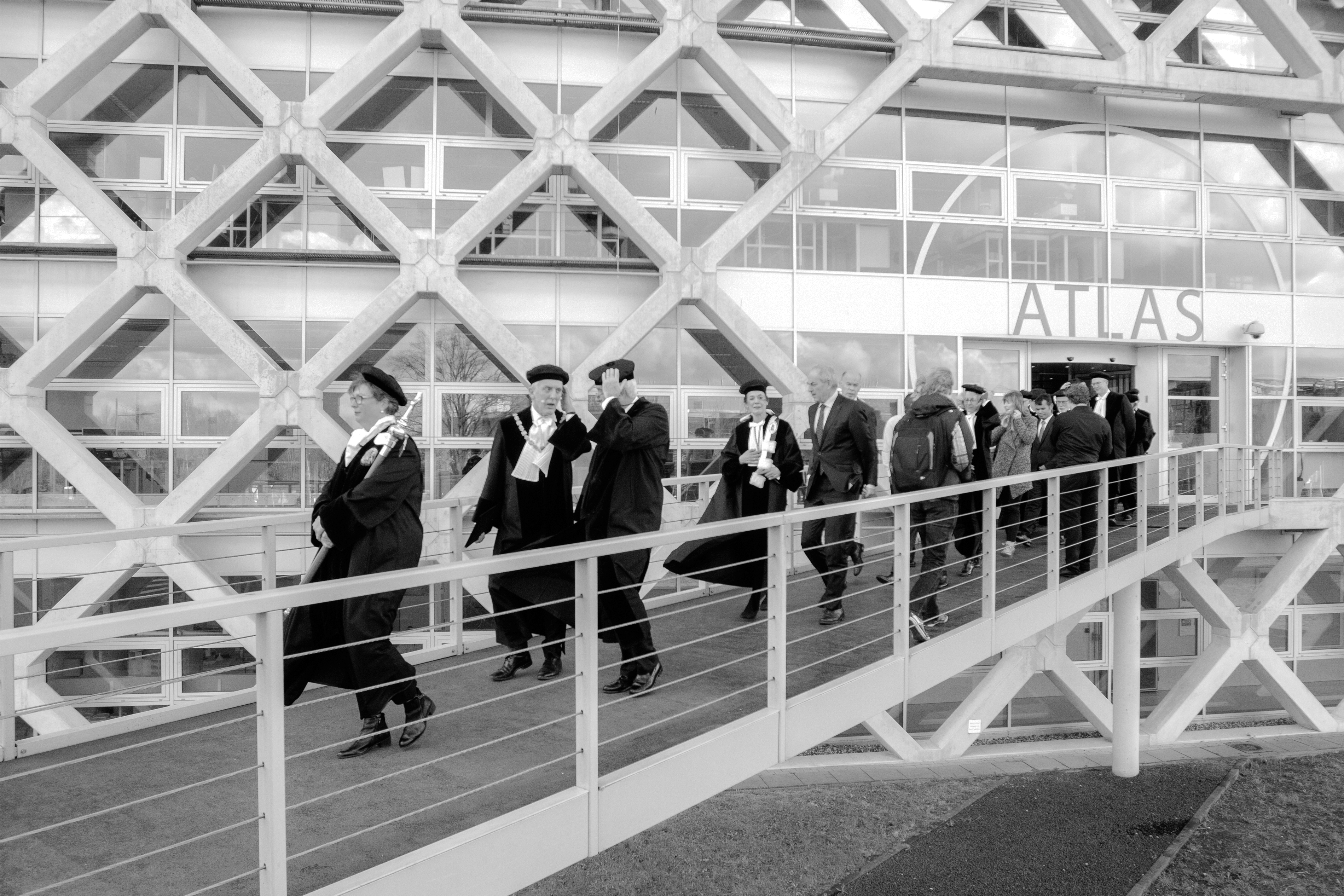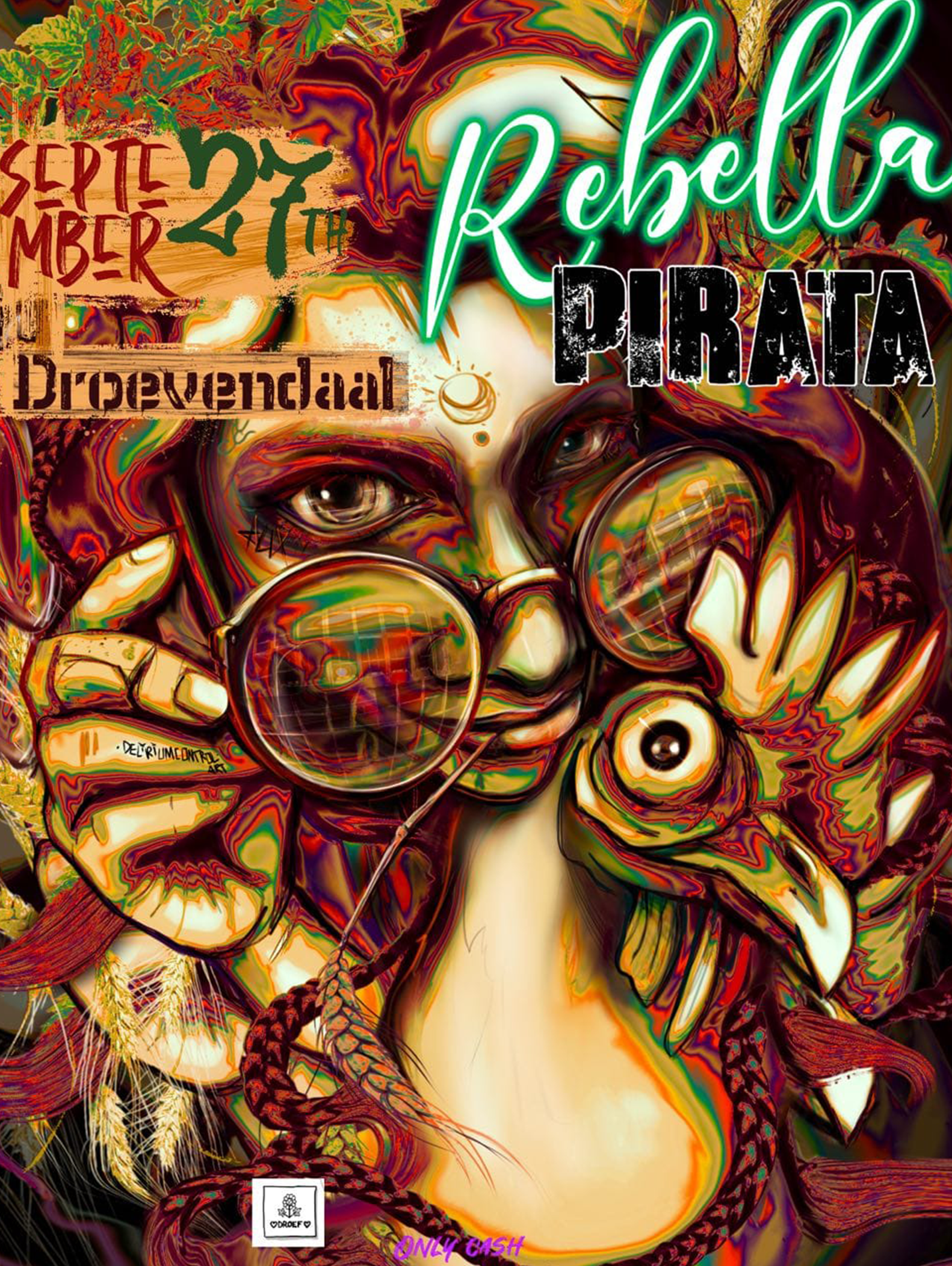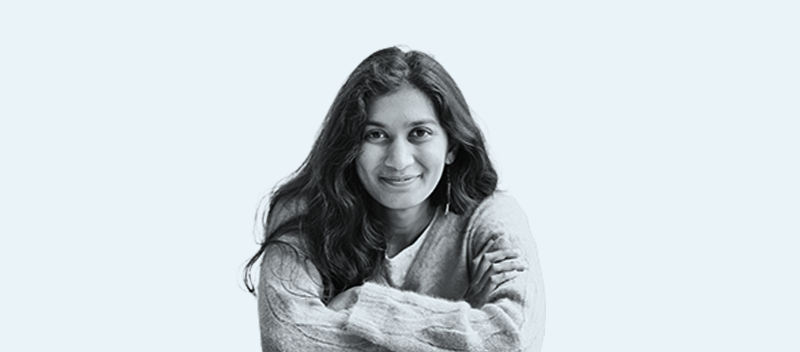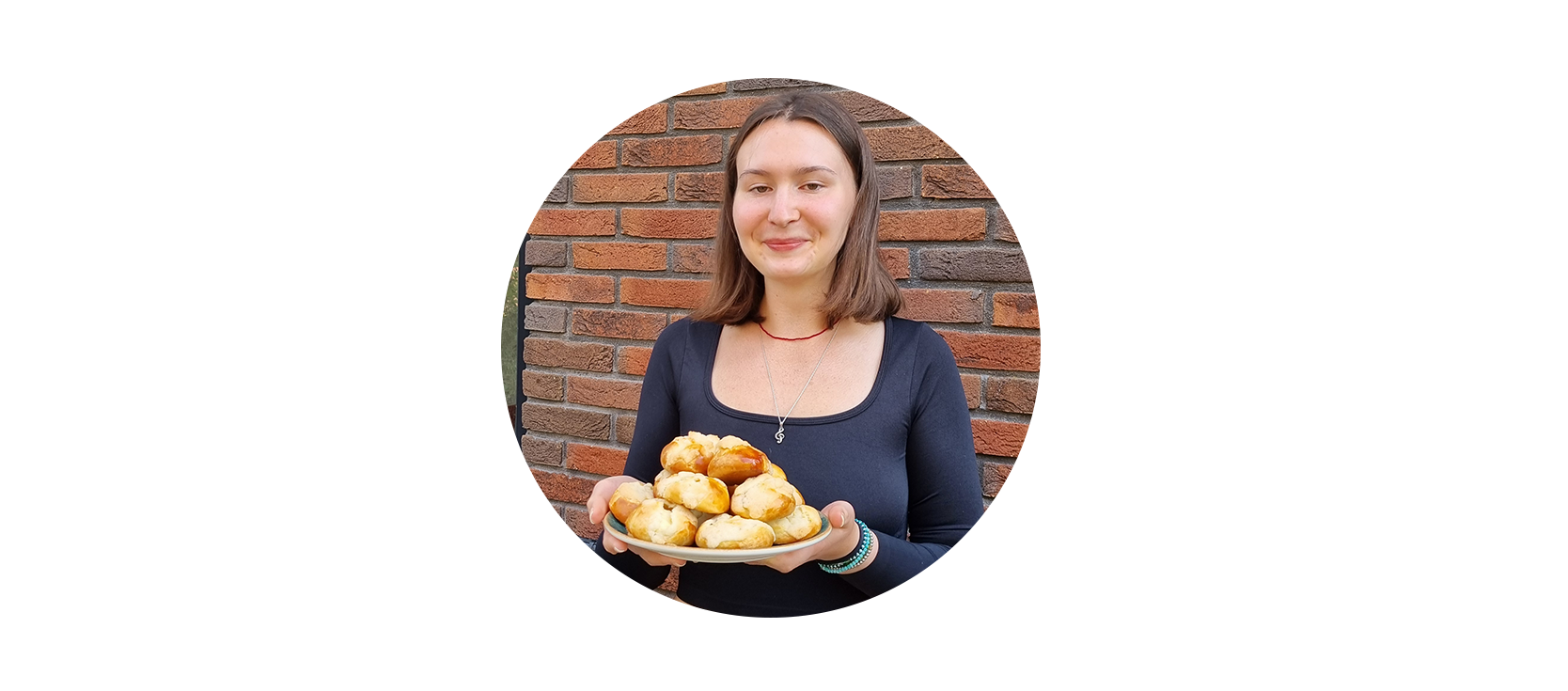After eight years, the Louise Fresco era has come to an end. What has she meant for WUR as President of the Executive Board? Resource asked around on campus.
At the start of her stint as President of the Executive Board, Louise Fresco said in our magazine that she did not want to be a director who focussed entirely on procedures. Her approach: ‘The collaboration between the university and DLO (now Research, ed.) within WUR remains a brilliant idea. I wonder whether we can get more out of that cooperation. Can we make more use of DLO for student internships, and can DLO be more involved in lectures and universities?’ She wanted to put societal issues on the agenda too. ‘I think Wageningen must provide clarity about the intensification of agriculture. Upscaling is not a goal in itself and is not the same as intensification. We have to look for the best way to intensify. […] Also, producing enough proteins for the growing world population remains a major point on the agenda and the biobased economy calls for new knowledge from Wageningen’.
That was then. And looking back on it now?
Simon Vink, former spokesperson for the Executive Board
‘You have to see it in the context of a series of Wageningen presidents. At the turn of the 21st century, Cees Veerman was appointed Chair of the Executive Board, when Wageningen was looking quite desolate. It was small and fragmented, and lacked self-confidence. Veerman turned it into a coherent whole in terms of governance. After that it needed a strong manager with a clear vision on how to make it a rational organization. That was Aalt Dijkhuizen. And after his period, what was needed was calm and confidence in the organization. And that has come mainly thanks to Louise who – together with the Executive Board – restored a sense of connectedness and the focus on the substance of our work. It’s hard to imagine a better series of leaders. Louise was a President with an overview of the full breadth of WUR’s scientific domain: she could easily talk to fundamental scientists, sociologists and administrators. She also positioned WUR in a broader societal context. Take for example the way she managed to interest people in photosynthesis as a science that addresses social issues rather than a complicated biochemical process for the initiated.’
She did little to change the idea that WUR should feed the world
Pablo van Neste, study advisor for the BSc in Forestry and Nature Management and former chair of the Farmers’ Group
‘I came to Wageningen because I read her book Hamburgers in Paradise. I thought she took a firm stand in it. And that firmness is her strength, because she challenges you to think about your standpoint. When she walks across the campus, she is like a celebrity. You are almost star-struck when you see her. But her policies and communication are a different story. Her views on agrotechnology and her position in the debate on organic agriculture are disappointing; she is pro crop protection products and pro big business, which sidelines part of WUR. And she hasn’t done much to change the idea that WUR’s task is to feed the world. I think we should get rid of that idea as soon as possible. She is also outspokenly critical of the idealistic worldview of dreamy, holistic students. And yet you can see from her books that she does investigate these kinds of thinking. You can read her train of thought, which I think is terrific. She has also brought major investors here and put Wageningen even more firmly on the global map. That has made WUR what it is today. My final verdict? Whatever the case, I am always impressed by people who bring about major changes.’
She has positioned WUR in a broader societal context
Lisa Becking, associate professor in Aquaculture and Fisheries and a researcher at Wageningen Marine Research
‘New ideas stem from both rational thought and associative thinking. The creative process of forming indirect associations requires us to be open to it. At our university, where much research is quite applied, it is easy to get stuck in a practical-minded tunnel vision. For this reason I appreciate the continued encouragement by Louise Fresco to look “out of the corner of your eye” at something that is literally or metaphorically at the edge of your field of vision, something you are not focused on, but which suddenly arises and puts your thinking on a different tack. In the overly full academic life of scientists on campus it is not easy to allow time for these intellectual digressions. All the more important for a university president to give the message: it’s ok, indulge in things that are of no immediate use. Art will give a surprising new perspective on a subject you thought you already knew well.’
Maria Forlenza, associate professor in the Cell Biology and Immunology chair group
‘When I think of Louise Fresco, I think of her often-repeated messages that “universities should serve society” and “because we are supported by society’s money, we have to work on what society deems important”. On the one hand, I totally agree that we the university – should be accountable to society for what we do with its money. On the other hand, statements like these make universities lose their primary identity and purpose: to generate and teach knowledge and to discover the potential of nature. Universities should not work on commission. I still think of the university as a rock in a flowing river our turbulent society that does not let itself be swayed by the latest “trends”. In the past few years, I felt that our director was better at representing a large part of our university, which does, indeed, focus on top research with fast impact, than at representing a smaller, yet significant portion of our university that is working on fundamental issues in nature with potentially no – predictable – short- or longer-term societal impact.’
Renee Rooijakkers, student assistant at Environmental Systems Analysis ESA and former member of the Student Council
‘At meetings with the Executive Board that I attended on behalf of the Student Council, I saw how she listened and kept things on track. After a heated discussion she was positive and encouraging. “Thank you for being so committed,” she would say. Then you’d be outside again without a conclusion, but you’d still think: that was a good conversation, ha ha. Indirectly, I learned things from her at those moments. To persevere and to probe. I also learned from her that anything is possible for a woman. If you consider when she started her career: it was a world dominated by men. She had an ideal and she went for it. During the lecture tour in Omnia, she said, “Don’t be a victim of your choices”. You can always change directions and life is not a straight uphill road. In terms of WUR, apart from things like the building of Omnia and attracting investors, I think the big thing she’s done has been to facilitate entrepreneurship, including for students. The message is: you don’t always have to work for a big company, you can do it yourself based on your own ideals and ambitions.’
I learned from her that anything is possible for a woman
Cees Buisman, Professor of Biological Recycling Technology
‘Louise Fresco has lent some grandeur to WUR. When I started as a professor in Wageningen in 2003, things weren’t going very well here. We had barely 400 first-year students, and we had an inferiority complex. Then along came the new rector Martin Kropff and he said: “Come on, we are the largest knowledge institution in the Netherlands, bigger than TNO (an institute for applied sciences, ed.)”. He shook things up and we started winning Spinoza awards. Suddenly we were a serious player. Fresco has added international importance to that, through her personality and profile and the organizations she is involved in. She has raised WUR to a higher level. Fresco is a brand of her own and she was Presidentof the Executive Board of WUR as well. Those are two separate things, but she did connect her personality with Wageningen. In terms of the direction she took us in, she has focused more on Food and Agri than her predecessors. Do I, as an environmentalist, feel disadvantaged by this? Well, fortunately, in Arthur Mol we have an environmental professor as our rector. Louise’s strength is that she always stays friendly; picking a fight is a bad form of dialogue. She sets an example of how it should be done’.
Jan den Ouden, Forest Ecology and Management
‘I had expected Louise Fresco to usher in the winds of change. But I didn’t notice anything like that. There’s been no change and not much internal communication. At least her predecessor Aalt Dijkhuizen used to come and talk to us about the issues at stake. She has never visited us. I especially missed any apparent interest in the problems in the workplace. Things like the pressure of work and the large influx of students. I had expected Fresco to be more open to other forms of agriculture, but she mainly advocates intensive forms of agriculture. That is a missed opportunity. Wageningen is still associated with the current problems in agriculture. I have also been disappointed in her decisiveness. Sustainability is a high priority for WUR, and in her columns in NRC (a newspaper, ed.) she wrote about the behavioural changes needed for a sustainable future. When I emailed her suggesting we apply this at WUR, and questioned the way we take travelling around the world for granted, I was sent packing. A few weeks later, in her column, she criticized people who make excuses to avoid acting sustainably. I responded to that again: how relevant to WUR. And once again, I was rebuffed. In the current climate crisis, Wageningen should be leading the way in behavioural change. But she just didn’t want to go there, and that has been a disappointment to me. I hope the new President will do better.’
I missed any apparent interest in problems in the workplace
Jelle Behagel, chair of WUR Council
‘Louise Fresco is good at letting you know that what you do is valuable. She is respectful, which I really like. Internally she has created a much more relaxed and open working atmosphere. There is always room for dialogue and conversation. That is a big difference from her predecessor. Externally, she has clearly strengthened WUR’s international reputation. She puts a strong emphasis on cooperation with industry and she has attracted a lot of companies to the campus. Some people think that has compromised our integrity. I think it’s more a question of reputation. Fresco believes that you bring about societal change through innovation in business. I think the role of government, civil society organizations and citizens is a lot more important than she does. You have to see her job on the side as a commissioner at Syngenta in that light too. But it would have been better if she hadn’t taken that job. For many students and staff members, it implies that you don’t think their ideas are very important. I think and hope that in the next eight years the focus will be more on the societal side of things. Her successor Sjoukje Heimovaara also wants to make room for NGOs and other organizations on the campus.’

 Text: Roelof Kleis en Willem Andrée | Dies Natalis 2017. Louise Fresco in the middle next to Job Cohen. Photo: Jonne Seijdel.
Text: Roelof Kleis en Willem Andrée | Dies Natalis 2017. Louise Fresco in the middle next to Job Cohen. Photo: Jonne Seijdel. 

